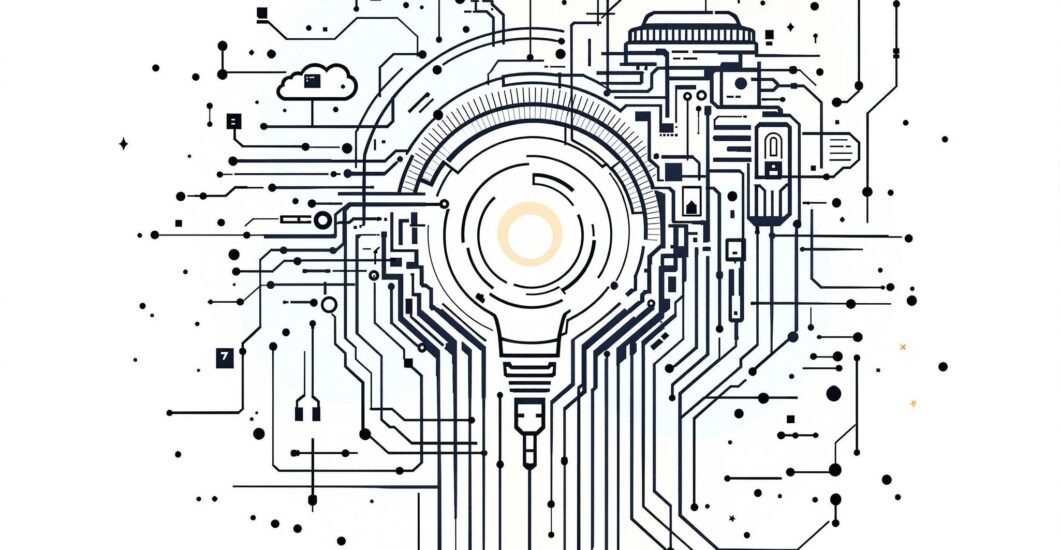**The Evolution of AI: A Journey Through Time and Technology**
Artificial Intelligence (AI) has transitioned from a mere concept to a transformative force reshaping industries and everyday life. What once seemed like science fiction is now a reality, characterized by intelligent machines that can learn, adapt, and even think. From early computational theories to the intricate neural networks of today, AI’s evolution is a captivating tale of innovation, collaboration, and discovery. This article delves into the pivotal milestones and technological advancements that have propelled AI forward, illuminating how far we’ve come and what the future may hold. Join us on this exploration of machine learning, algorithms, and the ongoing dialogue about the ethical implications of our creations.
**The Dawn of Artificial Intelligence**
The roots of AI can be traced back to the mid-20th century when visionary scientists began exploring the idea of machines that could simulate human intelligence. In 1956, the Dartmouth Conference marked a seminal moment in AI history, where pioneers like John McCarthy and Marvin Minsky laid the groundwork for what would become a burgeoning field of study. Early AI focused on problem-solving and symbolic reasoning, utilizing basic algorithms to perform tasks that required human-like thought processes. Despite the initial optimism, progress was slow, leading to what is known as the AI winter—a period marked by disillusionment and a significant reduction in funding and interest.
**Resurgence through Machine Learning**
The resurgence of AI in the 21st century can be largely attributed to advances in machine learning (ML), particularly the development of algorithms that allow computers to learn from data. Fueled by substantial increases in computational power and the availability of vast datasets, ML shifted the focus from rule-based programming to data-driven decision-making. Techniques such as supervised learning, unsupervised learning, and reinforcement learning opened new avenues for AI applications. Businesses began to leverage ML for predictive analytics, customer insights, and automation, leading to increased efficiency and better decision-making processes. This era also saw the rise of deep learning—an advanced subset of ML that uses neural networks with multiple layers to analyze complex data patterns.
**The Role of Big Data and Computational Power**
The relationship between AI and big data is symbiotic; the exponential growth of data from the internet, IoT devices, and social media provides the fuel that drives AI systems. *Cloud computing* has further democratized access to computational power, enabling organizations of all sizes to harness AI technologies without needing vast infrastructure investments. Companies now implement AI solutions for everything from natural language processing in customer service to real-time data analysis in finance. This transformative power of big data and accessible computing has not only enhanced business operations but also provided insights that were previously unimaginable, propelling innovation in various sectors such as healthcare, transportation, and entertainment.
**Ethical Considerations and Future Directions**
As AI continues to permeate daily life, it ushers in a host of ethical considerations that demand thoughtful reflection. Issues like algorithmic bias, data privacy, and the potential for job displacement pose significant challenges for society. Organizations and researchers are increasingly recognizing the importance of developing AI responsibly, emphasizing transparency and fairness in AI systems. Initiatives aimed at creating ethical frameworks for AI development are gaining traction, encouraging collaboration between tech companies, policymakers, and academia to ensure that technology benefits humanity as a whole. The future of AI lies not only in its technical capabilities but also in how we navigate these ethical waters.
**Conclusion: Embracing the Future of AI**
The evolution of AI is a testament to human ingenuity and the relentless pursuit of knowledge. From its humble beginnings in the mid-20th century to its current status as a cornerstone of technological advancement, AI’s journey has been marked by remarkable breakthroughs and complex ethical challenges. As we embrace this new era of intelligence, it’s crucial to remain mindful of the implications our creations hold. The lessons learned from AI’s evolution remind us that with great power comes great responsibility. The future promises even more revolutionary changes that will continue to shape our world—let us ensure we guide these developments towards a beneficial horizon for all.


